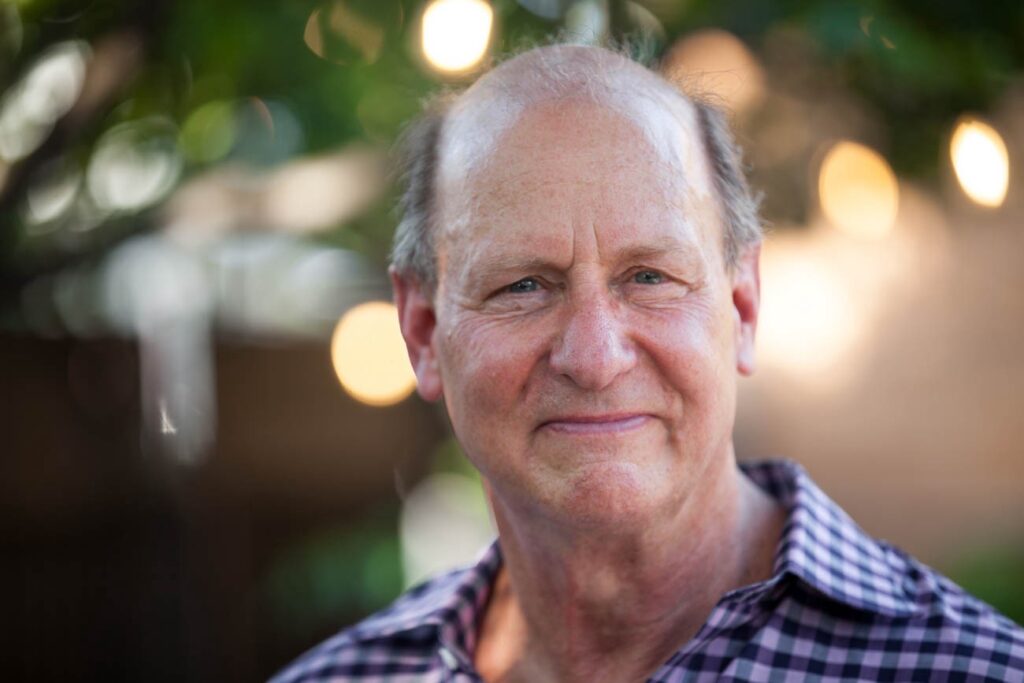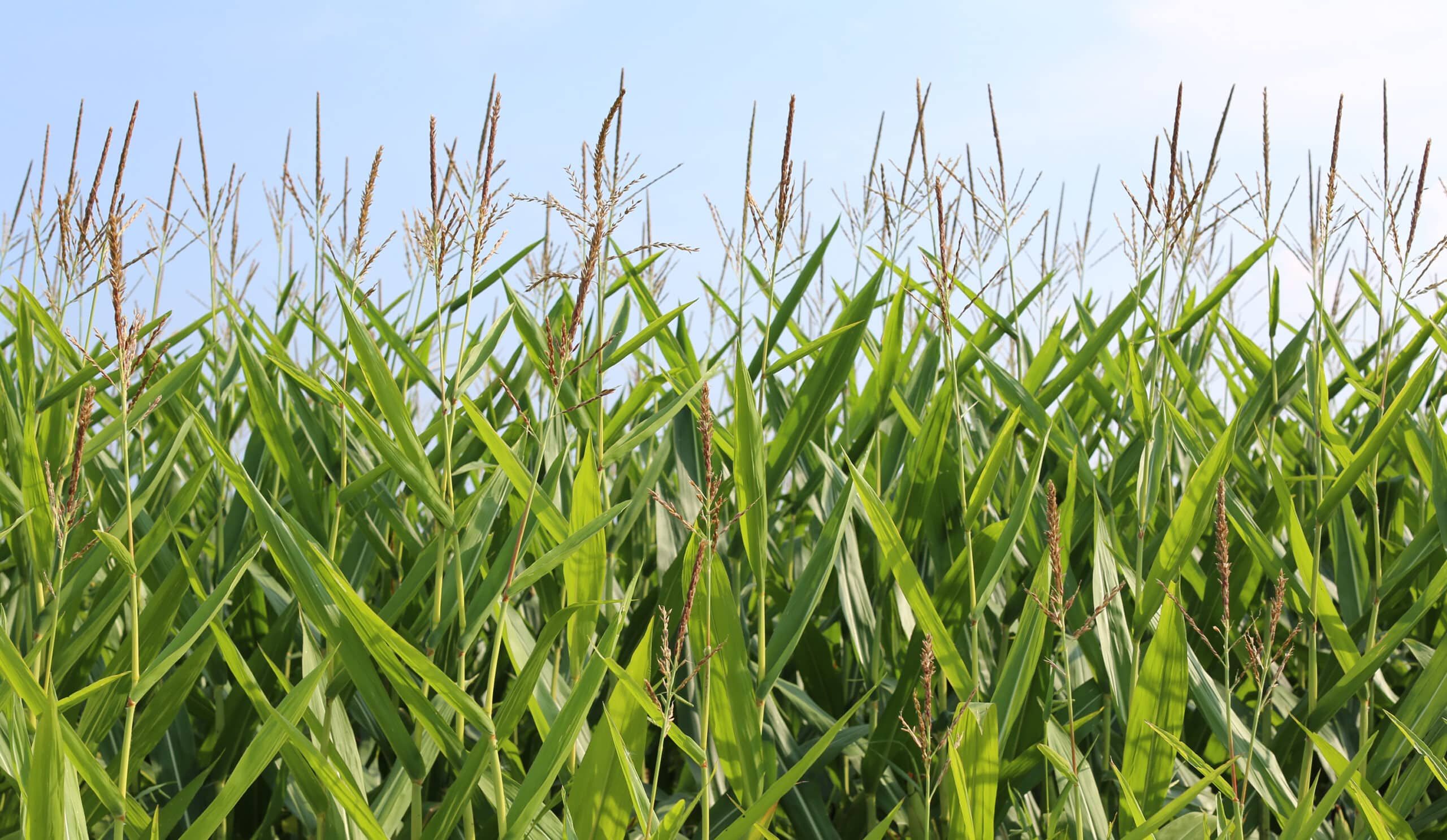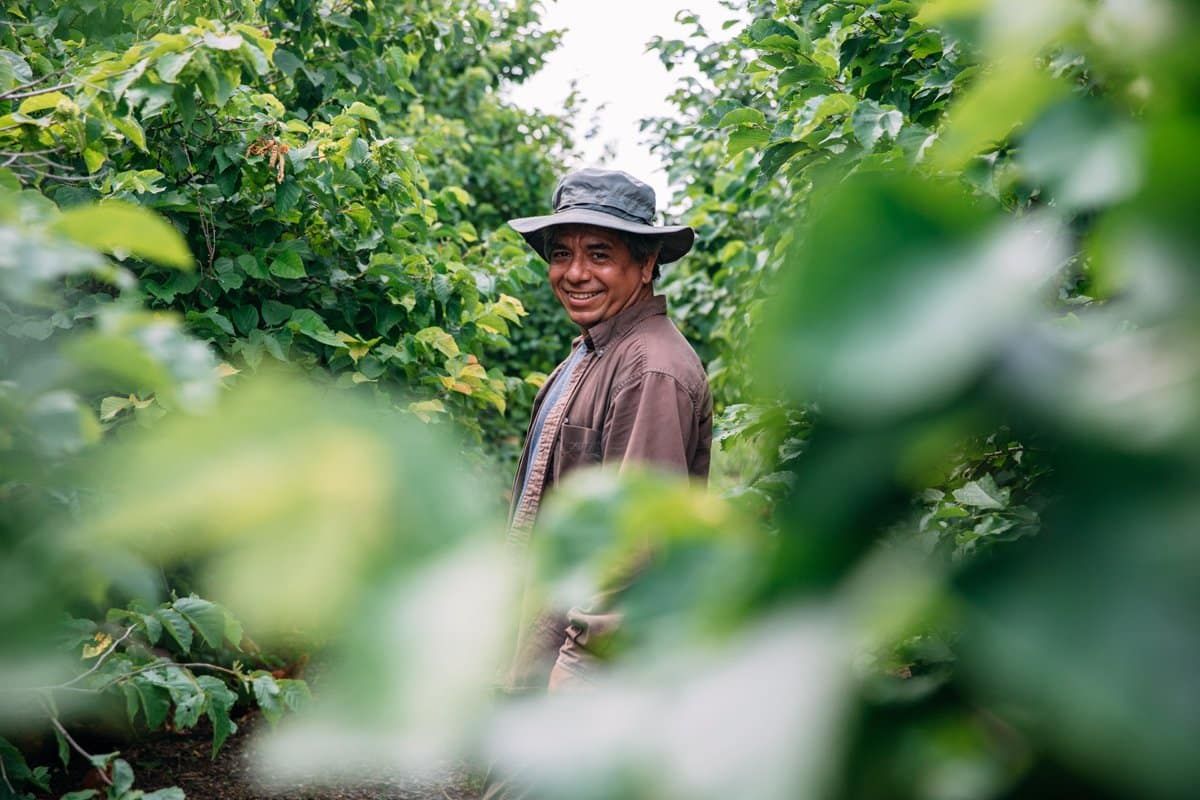BLOG
5 Things We Must Do To Improve the U.S. Healthcare System
“Shifting to organic practices on a large scale has enormous potential to regenerate soils, ecosystems, rural economies, our food system, and so much more.”
Dr. Stephen Rivard
Authority Magazine, a Medium publication, is devoted to sharing interviews to draw out stories that are both empowering and actionable. As a part of Authority Magazine’s interview series called “5 Things We Must Do To Improve the U.S. Healthcare System”, Luke Kervin, Co-Founder of PatientPop, had the pleasure to interview Dr. Stephen Rivard, co-founder of Iroquois Valley Farmland REIT. You can read the article below or view it on the original site here.

A native of rural Illinois with strong family ties to agriculture, Dr. Stephen Rivard practiced emergency medicine for 26 years, where he observed an increase in the number of patients seeking treatment for diet and environment-related illnesses. These experiences motivated Dr. Rivard’s interest in food as medicine and, in 2007, Dr. Rivard and his lifelong friend Dave Miller founded Iroquois Valley Farmland REIT, a Best for the World B Corp and public benefit corporation, to provide land security to organic farmers. With the support of over 600 impact investors, Iroquois Valley has built a portfolio that includes nearly 100 farmland investments, impacting over 17,000 acres of farmland across 15 states and representing $70 million in assets.
Thank you so much for joining us in this interview series! Before we dive into our interview, our readers would like to get to know you a bit. Can you tell us a story about what brought you to this specific career path?
My father died at age 42 from a heart attack. This destabilizing event influenced my decision to enter medicine. It’s hard to imagine now, but emergency medicine was a new field when I graduated from medical school. As a new doctor, the opportunity to be part of an emerging, highly integrative field was appealing. Because I had so many varied interests, emergency medicine felt like the best fit.
Can you share the most interesting story that happened to you since you began your career?
In the ER, we were exposed to many extraordinary and often tragic events. Two pivotal experiences for me involved agrichemicals: on one occasion, I cared for a 4-year-old boy who was playing in his dad’s shed and spilled a bottle of an organophosphate insecticide on himself. The child died of heart and lung failure. On another occasion, a farmer arrived at the hospital with exposure to the same insecticide when he was in the field spraying. Thankfully, the farmer survived this experience, but he spent many days in the ICU on a ventilator. These were my first encounters with agrichemicals and their negative impact on human health. I was astonished that these same chemicals are widespread in our food system and used to grow food.
Can you share a story about the funniest mistake you made when you were first starting? Can you tell us what lesson you learned from that?
I made the mistake of underestimating one of my patients. I assumed my 93-year-old patient would be too weak to get herself up on a gurney. I offered my assistance, but she stepped up on the stool and hopped onto the bed. Surprised, I said with a smile that she reminded me of my mother.
“How old is your mother?” she asked. I responded that my mom is 78 years old.
“Oh, to be 78 again,” she said. It was a lesson to not judge what a person is capable of doing and to enjoy your life at every age. In fact, I am in the process of retiring from practicing medicine. I’m looking forward to being even more involved with Iroquois Valley. For this next stage of my life, I plan to participate in public-facing advocacy to bring awareness to the link between food and health.
Can you please give us your favorite “Life Lesson Quote”? Can you share how that was relevant to you in your life?
I often say that “anything worth doing is worth doing badly,” to convey that perfection should not get in the way of progress. It can be discouraging to be a beginner at something and to be out of your element. For example, I was terrible when I started learning piano, and I also sounded silly when I started learning French. We have to remember that mistakes are a part of life and that it takes courage to get going.
When my fellow co-founder Dave Miller and I started Iroquois Valley, I knew nothing about finance, but I knew what I’d seen practicing medicine and that something needed to be done about the converging food and health crises. Dave’s experience in finance made our partnership successful. I’m proud of how far the company has come and for the learning we did along the way.
How would you define an “excellent healthcare provider”?
A knowledgeable doctor is valuable, and coupled with empathy, that doctor is invaluable. It’s important that healthcare practitioners listen to their patients and treat their patients as holistically as possible.
What are your favorite books, podcasts, or resources that inspire you to be a better healthcare leader? Can you explain why you like them?
There is a direct connection between the book Silent Spring by Rachel Carson and my work at Iroquois Valley. Carson concluded that DDT and other pesticides had irrevocably harmed ecosystems and contaminated our food supply. Another book that influenced me is Living Downstream by cancer survivor and ecologist Dr. Sandra Steingraber. Iroquois Valley is uncompromising in our support of organic farmers because they don’t use the harmful chemicals that are so common in the industry. It’s important for our healthcare leaders to understand the link between how we farm and human health.
Are you working on any exciting new projects now? How do you think that will help people?
Iroquois Valley is developing an agroforestry and integrated crop farming campus at Rock Creek Farms in Will County, Illinois. This showcase farm will be open to the public and is about 50 miles outside of Chicago.
For the most part, crop farmers in the Midwest operate in monocultures of corn, beans, and wheat. At Rock Creek, we are practicing agroforestry at scale to integrate annual and perennial crops; for example, interplanting native fruit trees with alfalfa hay. Alley cropping and silvopasture are being incorporated along with riparian buffers and wind breaks. We are restoring wetlands to increase biodiversity and have planted over 10,000 trees. Food will be sold on the farm to feed and educate the local community. It is a multi-stakeholder venture involving Savanna Institute, the USDA’s Natural Resources Conservation Service, Rodale Institute, Village Farmstand, Prairie Fruits Farm & Creamery, and Healing Soils Foundation. Prairie Fruits currently sells its cheese throughout the Chicago foodshed as well as various sweetgreen locations. Rock Creek can support farms in our network and in the region to expand their businesses.
At Rock Creek, we will also conduct soil testing and nutrient density testing on food grown at this campus. I’m troubled by studies that show declines in food’s nutritional quality. Between climate change and widespread practices in agriculture that degrade soil health, I feel that some of the most powerful work I can be engaged in is to restore soil health through organic and regenerative practices. Doing this work at Rock Creek will hopefully produce more data points demonstrating that healthy soils grow healthy foods that contribute to the overall health of people.
Ok, thank you for that. Let’s now jump to the main focus of our interview. According to this study cited by Newsweek, the US healthcare system is ranked as the worst among high income nations. This seems shocking. Can you share with us 3–5 reasons why you think the US is ranked so poorly?
This actually does not shock me at all. During my years in the ER, I noticed a disturbing trend toward poorer health. I sometimes feel that we are sicker now as a population than we were when I first began practicing medicine.
Think about this:
- Food allergies have increased.
- Obesity is a significant health concern in America. It’s often accompanied with heart disease, hypertension, and diabetes and produces costly medical issues. In fact, when I first started practicing medicine, we referred to Type 2 diabetes as Adult Onset Diabetes because it occurred so rarely in children and teenagers. That’s changed, too.
- Chronic inflammation, exacerbated by a diet of conventionally grown foods, can lead to obesity, diabetes, stress, mental health problems, and other negative health outcomes that are avoidable.
- Neurologic diseases such as Alzheimer’s and Parkinson’s are more common, too.
- Colorectal cancer is far more common, especially in people under 50. It’s been linked to chronic inflammation, declines in gut health, and diet, according to the National Cancer Institute.
The more I studied, the more aware I became aware that many of our medical issues are food related. At the same time, the costs of healthcare have skyrocketed. My reasoning tells me that these trends are not sustainable — we need to change our approach to healthcare, and I believe we should start with food and prevention.
As a “healthcare insider”, If you had the power to make a change, can you share 5 changes that need to be made to improve the overall US healthcare system? Please share a story or example for each.
1) Provide everyone in the U.S., especially children, with access to high-quality, organic food. Currently, only 1% of US farmland is organic. Shifting to organic practices on a large scale has enormous potential to regenerate soils, ecosystems, rural economies, our food system, and so much more.
2) Invest in nutrition education throughout medical school. When I was in medical school, we spent no time learning about the way food interacts with health. Since then, there have been some improvements, but in my opinion, we have made surprisingly little progress integrating nutrition into medicine. Pharmaceuticals are undoubtedly important and valuable in medicine, but I might spend a proportionate amount of time on food as both prevention and treatment, where applicable.
3) Clean our water. Water is critical to life on this planet, and I am incredibly concerned about pollution, including runoff from agriculture. Each year the dead zone in the Gulf of Mexico grows, largely from fertilizers used on conventional farms throughout the Mississippi River watershed. For the sake of the planet and all of us living on it, this cannot continue.
4) Improve air quality. Respiratory illnesses are also on the rise, and they are exacerbated by wildfires fueled by climate change. In addition, inner city residents have higher rates of respiratory diseases, often due to their proximity to the pollution from industry and highways. We have a lot to learn about what the long-term effects COVID-19 will have on respiratory health. As I’ve indicated, I firmly believe that preventing disease is much better and more cost effective than surgical or other kinds of post-medical interventions.
5) Educate. We have to change a lot of people’s minds about how we farm, and the more hard science we have, the better. As mentioned, we are working on a Midwest showcase farm outside Chicago to demonstrate and teach best-practice organic farming methods that includes agroforestry integration. In addition, testing will be conducted to provide more data points on the benefits of farming in these ways.
What concrete steps would have to be done to actually manifest these changes? What can a) individuals, b) corporations, c) communities and d) leaders do to help?
a) Individuals: Buy organic food directly from farmers or at a trusted grocery store like Village Farmstand in Evanston, Ill. Many farmers in the Iroquois Valley network also sell directly to consumers through their websites. Get educated about organic farming. The Rodale Institute farm systems trial is a landmark, nearly 40-year comparison of conventional versus organic production. The Organic Farming Research Foundation has an organic for climate resilience campaign outlining the benefits of organic farming. Individuals can also support sustainable causes and organizations through their purchasing power, by donating time and money, and through investing in companies like Iroquois Valley whose work supports the future.
b) Corporations: Adopting responsible corporate practices more widely is a step towards the accountability we need from businesses. Iroquois Valley is a proud certified B Corp and public benefit corporation. This means that we have a corporate structure that supports social, environmental, and financial impact. We have been recognized for our impacts, and we have been named a Best for the World B Corp for multiple years. As a B Corp, we are required to consistently verify our impacts through a rigorous assessment process. We also report on the ways we are creating public benefit — in our case, to enable the production of healthy food, restore soils, and improve water quality by providing secure and sustainable farmland tenure. We believe that for-profit organizations need to be accountable to all stakeholders, including people and the planet.
c) Communities: Get educated and involved in local initiatives. For example, Iroquois Valley is in partnership with Black Oaks Center in Pembroke Township, which is a historically Black farming community south of Chicago. The township came together to develop a long-term sustainability plan prioritizing native ecosystem restoration, sustainable agriculture, and many health-giving quality-of-life measures. I’m inspired by this creative community-building.
d) Leaders: I would urge political leaders to look at the total long-term costs and impacts of conventional agriculture on human and planetary health. A particular concern for me is glyphosate (also known as Roundup), and in the U.S. we use over one million tons each growing season. Glyphosate has been linked to cancer and numerous states and international countries have limited or banned the herbicide. The pursuit of making food affordable through the industrial food model has come at a high cost.
The COVID-19 pandemic has put intense pressure on the American healthcare system, leaving some hospital systems at a complete loss as to how to handle this crisis. Can you share with us examples of where we’ve seen the U.S. healthcare system struggle? How do you think we can correct these issues moving forward?
I am not a virologist and don’t pretend to know the many intricacies of this specific disease. COVID-19 does appear to act differently from many of the viral diseases we have encountered in prior years. I’m also not a policymaker. It’s clear to me that this pandemic revealed how fragile many of our systems are, including healthcare.
How do you think we can address the problem of physician shortages?
There are many factors to consider, including the growing demand for healthcare. I believe that food — grown organically in healthy soils — is medicine. I think starting there and focusing on preventative medicine will be especially important moving forward.
How do you think we can address the issue of physician diversity?
I’m struck by how much work we have to do in many fields, including medicine. I think the events of the last year have brought racial and social justice issues home in so many ways that they weren’t before. I’m reflecting on the COVID-19 pandemic and its disproportionate impact on communities of color, both in the U.S. and internationally. I’m heartened because I have a sense that we’re approaching these topics more holistically than in other points of history that I’ve lived through. At Iroquois Valley, we participated in two training courses related to diversity, equity, and inclusion this year that I found enormously helpful. One starting point is to acknowledge and interrupt the biases we all have. We need passionate, intelligent, and caring physicians from all walks of life. We must work harder to support physicians of color to enter and thrive in our field.
I’m interested in the interplay between the general healthcare system and the mental health system. Right now, we have two parallel tracks, mental/behavioral health and general health. What are your thoughts about this status quo? What would you suggest to improve this?
Mental health is not my area of medical expertise. I have been following recent studies on the human gut microbiome that have shown a link between gut health and mental health. It is reasonable to believe that improving the way we eat could play a role in improving mental health.
You are a person of great influence. If you could inspire a movement that would bring the most amount of good to the most amount of people, what would that be? You never know what your idea can trigger. 🙂
I believe in the power of a grassroots movement. Iroquois Valley’s CEO Dave Miller and I started this work because we believe it is how we could make the most difference in the world. We are structured where accredited and non-accredited investors may support this movement with a minimum equity investment of roughly $10,000.
Organic farming is a way to restore health back to the planet. In addition, it can increase the flow of healthy and nutritious food that can help us prevent illness, shifting our healthcare system from reactive to preventative.
How can our readers further follow your work online?
For more information on Iroquois Valley Farmland REIT and its investment options, visit www.iroquoisvalley.com. You may sign up for our newsletter there and find links to our social media channels.
Thank you so much for these insights! This was very inspirational and we wish you continued success in your great work.




